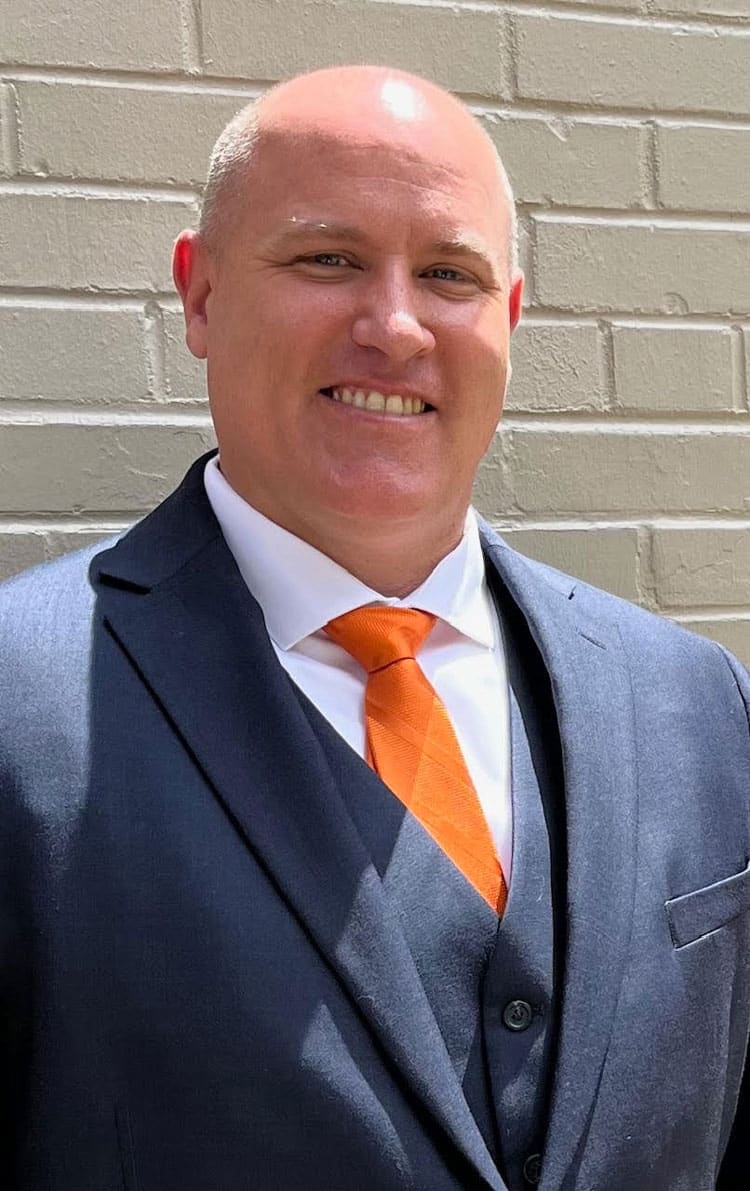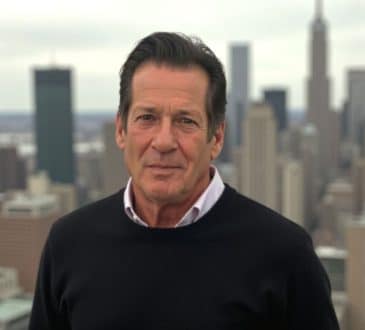Jeffrey Lamoureaux Title IX: Navigating Life, Leadership, and Service

Jeffrey Lamoureaux Title IX, raised in California, has dedicated over 24 years to law enforcement, civil rights compliance, and Title IX investigations. His career started with the Burbank Police Department, where he handled high-stress situations that left lasting impacts, shaping his understanding of trauma, justice, and the need for fairness. Today, he is the owner of CIXE Investigations, where he continues his mission of serving others, ensuring equity, and fostering safe environments. With a foundation built on faith and family, Jeff’s journey is marked by resilience, the support of his loved ones, and a passion for doing the right thing even when it’s difficult.
What led you to transition from a high-pressure career in law enforcement to civil rights compliance and Title IX investigations?
Honestly, it was a mix of necessity and passion. My wife, Melissa, played a significant role in helping me make this transition. She saw how the constant exposure to trauma in law enforcement was taking a toll on me, both physically and mentally, and she knew that I needed to make a change for the sake of our family and my own well-being. She also knew that I have always had a deep passion for helping people and finding the truth in complex situations, and she encouraged me to channel that energy into a field where I could make a different kind of impact.
In law enforcement, I was often the first responder to some horrific scenes, like the active shooter situation where I helped rescue two children from a hostage situation, or the tragic day when Officer Matthew Pavelka was fatally shot, and I performed CPR on him. These events showed me firsthand how trauma affects everyone involved and made me realize the importance of fairness, thorough investigations, and compassion. Shifting into Title IX and civil rights work allowed me to continue serving others but in a way that focuses on prevention, education, and protecting individuals’ rights.
How have these high-stress experiences shaped your approach to your current work?
They’ve given me an unshakeable commitment to fairness and trauma-informed care. When you’ve held a dying colleague in your arms or forced your way into a dangerous situation to save innocent lives, you don’t take safety or well-being lightly. In my current work, whether I’m investigating a Title IX case or consulting on civil rights compliance, I’m always mindful of the emotional and psychological impact that these situations can have on the people involved.
I approach every case with the same seriousness and thoroughness that I did as a first responder. But now, I also bring an added layer of understanding about how trauma can ripple through a person’s life. It’s crucial to make sure that everyone—victims / complainants, respondents, and even the people indirectly involved—feels heard and treated with respect. That’s a principle I live by.
What role does your faith play in your personal and professional life?
My faith is my anchor. When I was struggling with PTSD and the emotional aftermath of my time in law enforcement, my faith was one of the main things that helped pull me through. My relationship with God gives me a sense of purpose and reminds me to approach my work and my interactions with others with compassion and humility. It’s what keeps me grounded and focused on serving others, even when the work is difficult.
Professionally, my faith influences how I treat people. It pushes me to see every individual as someone deserving of dignity and respect. In civil rights compliance, this mindset helps me make fair, ethical decisions, even when those decisions are hard. Personally, it reminds me to prioritize what truly matters: my family, my health, and my integrity.
You mentioned PTSD from your law enforcement days. How do you manage that now?
It’s a constant process, but I’ve learned to prioritize self-care and recognize when I need help. Counseling was a turning point for me, and I’m not ashamed to say that. Seeking help isn’t a sign of weakness; it’s a sign of strength. I’ve also learned to rely on my support network, especially my wife and my faith community. Melissa has always been my rock, and talking to her, as well as staying active in my church, has been a huge part of my healing journey.
I’ve also developed healthy habits to manage stress, like taking daily walks and weightlifting. Physical activity helps clear my mind and keep me grounded. It’s about finding balance and knowing when to take a step back to reset.
What are some of the biggest challenges you see in civil rights and compliance work?
One of the biggest challenges is dealing with issues of retaliation in the workplace. I’ve disagreed with leadership before on how to handle ethical or compliance concerns, and I’ve seen situations where individuals who spoke up about issues were met with retaliation rather than support. It’s incredibly disheartening and counterproductive, especially when those in positions of authority engage in such behavior. It goes against everything that ethical and compliance roles stand for.
I’ve also seen how a lack of due process can harm individuals. Jumping to conclusions based on incomplete or biased information is a major issue, and I advocate for thorough, fact-based investigations. We owe it to everyone involved to get it right, and that means taking the time to assess credibility and weigh evidence carefully.
How do you balance the demands of your career with your family life?
Balancing work and family is one of the hardest but most important things I’ve learned to do. Early in my career, I let work consume me, and it strained my relationships. But my wife and daughters, Bella and Dani, are my world. I’ve made a conscious effort to prioritize them, even when work gets overwhelming.
It’s about being present. When I’m with my family, I try to give them my undivided attention. We go for walks, spend time outdoors, and make sure to have dinner together whenever possible. Family time isn’t just something I fit into my schedule—it’s something I build my schedule around.
What advice would you give to someone entering the field of civil rights compliance or Title IX work?
First, make sure you have a strong support system and prioritize self-care. This work can be emotionally draining, and it’s essential to have people you can lean on and strategies to manage stress. Second, approach every case with empathy and a genuine desire to understand all perspectives. People in these situations are often vulnerable, and your role is to ensure fairness and respect for everyone involved.
Finally, don’t be afraid to stand your ground when it comes to doing what’s right. You’ll face difficult decisions and resistance at times, but integrity is everything in this line of work. Stay true to your values and the principles of equity and justice.
What keeps you motivated and inspired?
My family is my biggest motivation. Everything I do is for them. Knowing that I’m setting an example for my daughters and that I’m making a difference in the lives of others keeps me going. My faith also inspires me, reminding me that my work has a purpose beyond just the tasks I complete. It’s about serving others and making the world a bit better, one case at a time.
And, honestly, the people I meet along the way. I’ve had the privilege of working with some amazing colleagues who inspire me with their dedication and resilience. They remind me that even in the toughest situations, there’s always hope and a reason to keep pushing forward.
Have you read?
Safest Countries in the World.
Most Productive Countries in the World.
Most peaceful countries in the world.
Most influential financial centers in the world.
Bring the best of the CEOWORLD magazine's global journalism to audiences in the United States and around the world. - Add CEOWORLD magazine to your Google News feed.
Follow CEOWORLD magazine headlines on: Google News, LinkedIn, Twitter, and Facebook.
Copyright 2025 The CEOWORLD magazine. All rights reserved. This material (and any extract from it) must not be copied, redistributed or placed on any website, without CEOWORLD magazine' prior written consent. For media queries, please contact: info@ceoworld.biz








